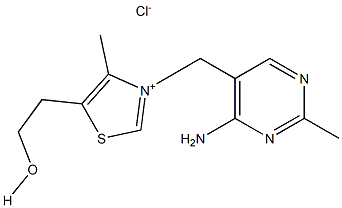Description
Thiamin (thiamine), or vitamin B1, is a water-soluble vitamin found naturally in some foods, added to foods, and sold as a supplement. Vitamin B1plays a vital role in the growth and function of various cells. Only small amounts are stored in the liver, so a daily intake of thiamin-rich foods is needed.Because vitamin B1 is involved in several basic cell functions and the breakdown of nutrients for energy, a deficiency can lead to various problems in the brain and heart that require a constant supply of energy.
Biological Functions
Vitamin B1(Thiamin) helps the body's cells change carbohydrates into energy. The main role of carbohydrates is to provide energy for the body, especially the brain and nervous system. Thiamin also plays a role in muscle contraction and conduction of nerve signals. Vitamin B1 is essential for the metabolism of pyruvate, which is an important molecule in several chemical reactions in the body.
Food source
Vitamin B1 is found naturally in meats, fish, and whole grains. It is also added to breads, cereals, and baby formulas.
Fortified breakfast cereals
Pork
Fish
Beans, lentils
Green peas
Enriched cereals, breads, noodles, rice
Sunflower seeds
Yogurt

Deficiency symptoms
Early symptoms of Vitamin B1 deficiency are vague. They include fatigue, irritability, poor memory, loss of appetite, sleep disturbances, abdominal discomfort, and weight loss. Eventually, a severe thiamin deficiency (beriberi) may develop, characterized by nerve, heart, and brain abnormalities. Different forms of beriberi cause different symptoms.





